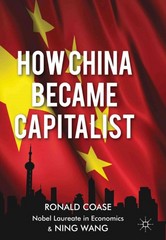Question
1. There are six types of trade agreements discussed by Cleaver, what are they? What type is the European Union and how does it differ
1. There are six types of trade agreements discussed by Cleaver, what are they? What type is the European Union and how does it differ from NAFTA?
2. (a) Suppose a world government (e.g. the United Nations) is able to impose laws on sovereign nations. Also, let it be the case that the world government has decided pollution is imposing too large of a social cost on the world. What type of problem is this? Illustrate and explain how a world government could correct this problem.
(b) In reality there is no world government and for there to be a solution, each government has to agree to participate. Explain why an agreement on pollution (e.g. the Kyoto Protocol) might fail with reference to game theory
3. Is the Pareto Efficient outcome an example of positive or normative economics? Explain your answer.
4. For an individual with a Rawlsian perspective, would the Human Development Index or the Gini coefficient be more informative (i.e. if a Rawlsian were making an argument about which society is "better" or "preferable," then which should the individual use)? Why?
5. In the 1950s nearly all of the trade Australia conducted was with North American or European countries, yet as of 2006 Japan was their largest trading partner (with China not far behind). List and explain some of the possible economic reasons this shift may have occurred.
Step by Step Solution
There are 3 Steps involved in it
Step: 1

Get Instant Access to Expert-Tailored Solutions
See step-by-step solutions with expert insights and AI powered tools for academic success
Step: 2

Step: 3

Ace Your Homework with AI
Get the answers you need in no time with our AI-driven, step-by-step assistance
Get Started


